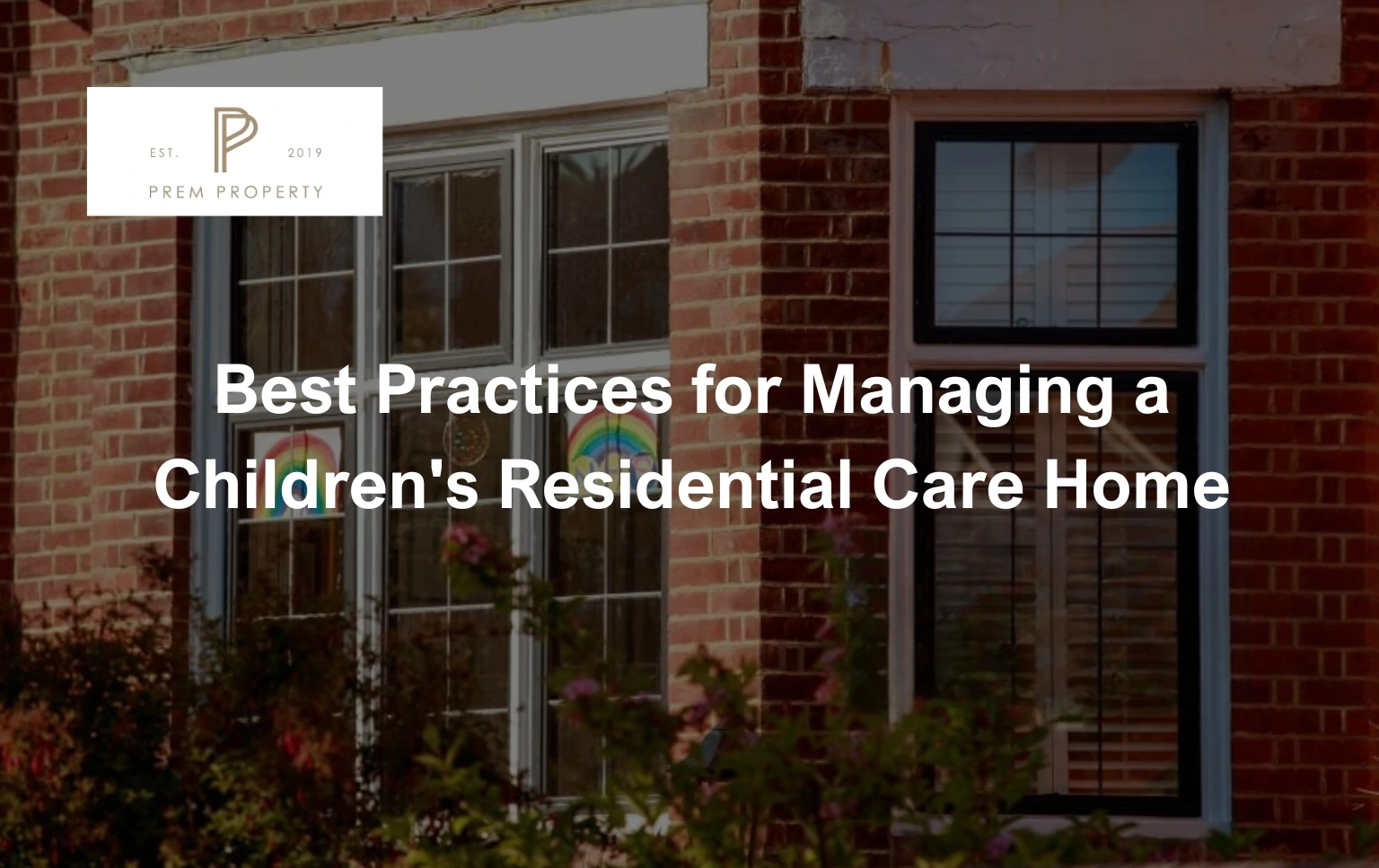Managing a children’s residential care home comes with a unique set of responsibilities and challenges. It requires not only adherence to strict regulations but also an understanding of the emotional and psychological needs of young residents. In the UK, the importance of providing a secure, supportive environment is paramount. As we explore best practices in this sector, we’ll highlight the key areas of staff training, child safety, emotional support and the critical role of compliance with UK laws. Additionally, we’ll also discuss how services such as Prem Property’s guaranteed rent solution can help strengthen your residential care home operations.
Staff Training: The Cornerstone of Quality Care
The foundation of any children’s residential care home lies in the quality of its staff. Well-trained professionals are crucial in creating a safe and supportive environment where children can thrive. Staff should receive ongoing training in safeguarding, child protection and mental health. Training should also focus on developing the emotional intelligence of carers, enabling them to empathise with the challenges children face.
The UK Government provides guidelines on training and qualifications for residential care staff. According to the Children Act 1989, all staff must undergo appropriate training before working directly with children and this must be regularly updated. Furthermore, the Ofsted (Office for Standards in Education, Children’s Services and Skills) also inspects care homes to ensure that staff qualifications and training meet the required standards for child welfare and safety.
For residential care homes to be successful, the team should be well-versed in the emotional and behavioural challenges children may face, whether from past trauma, neglect, or separation from their families. Effective training ensures that the staff are prepared to offer emotional support, manage complex behavioural issues and build trusting relationships with the children.
Child Safety: Meeting Legal Standards and Ensuring Protection
Child safety is an absolute priority in any residential care setting. All homes must be in full compliance with relevant UK regulations designed to protect children from harm. This includes not only safeguarding policies but also the physical safety of the premises.
The Children Act 1989 and The Care Standards Act 2000 outline specific requirements for care homes in the UK. These regulations cover a wide range of aspects, including staffing ratios, safety of the environment, and procedures for dealing with allegations of abuse. Ofsted plays a critical role in ensuring compliance with these standards by inspecting children’s homes and offering recommendations for improvement.
Care homes must implement strict child protection policies. These should cover everything from recruitment procedures (to ensure staff are suitable to work with children) to clear reporting channels for any suspected abuse or neglect. Regular safety audits, thorough background checks on all staff members, and ensuring that safety equipment (such as fire alarms, secure doors and CCTV systems) is in place are vital steps in protecting children.

Emotional Support: Creating a Stable, Nurturing Environment
Providing emotional support is just as essential as physical care in a residential care setting. Many children in care have experienced trauma, neglect or difficult circumstances, making emotional stability a critical need. Residential care homes must offer a safe and stable environment where children can heal and build trust.
The emotional development of children can be supported through various activities that encourage positive social interactions. Activities such as playtime, creative arts and regular outings help children build confidence and learn social skills in a secure environment. Care staff must be trained to identify signs of emotional distress and to use trauma-informed practices to address the emotional needs of children.
In addition, care homes should provide opportunities for one-on-one support, where children can express their feelings and experiences. A designated mental health professional or therapist can provide ongoing emotional support tailored to the needs of each child, fostering long-term emotional wellbeing.
UK Laws: Ensuring Compliance with Regulatory Standards
In the UK, the government has set out comprehensive regulations for children’s residential care homes, which are designed to ensure that the children receive high standards of care. The Care Standards Act 2000 and the Children Act 1989 cover a wide range of issues, including the standard of accommodation, staff training, safeguarding, and the provision of health and educational services.
These regulations require care homes to maintain high standards of hygiene and safety, with a focus on promoting the welfare of children. Care providers must also ensure that children’s rights are respected and that children are listened to and supported in making decisions about their lives.
Additionally, Ofsted is responsible for inspecting children’s homes in England to ensure compliance with regulations and to assess the overall quality of care. Care homes that are found to be non-compliant with these regulations may face penalties, including closure or a reduction in their rating.
Property Sourcing: Creating a Homely Environment
The physical setting of a children’s residential care home plays an important role in the overall wellbeing of the children. A homely, comfortable environment is essential for fostering a sense of security and stability. To ensure that care homes meet regulatory standards, property sourcing must be done carefully.
Services like Prem Property offer valuable support in finding suitable properties that meet the standards required for residential care homes. These properties are specifically designed to foster emotional development and stability, ensuring children have a homely setting where they feel safe and comfortable.
Prem Property offers assistance in sourcing homes that comply with Ofsted regulations and align with the care home’s specific needs. They also provide solutions for transforming unregulated homes into compliant properties, ensuring that existing structures can be made suitable for children’s care. Additionally, strategic location selection is key to ensuring that children have access to community involvement, schooling and extracurricular activities—all essential elements of their development.

Ongoing Compliance and Maintenance Support
Compliance and maintenance are ongoing responsibilities for residential care homes. Regular inspections and maintenance checks are essential to ensure that the property remains safe and suitable for children.
Prem Property also offers compliance and maintenance support, ensuring that homes stay aligned with changing regulations and standards. By staying proactive, residential care providers can maintain the highest standards of care for children.
Additionally, with Prem Property’s Guaranteed Rent Solution, care providers can secure long-term leases with landlords. This helps provide stable, well-maintained properties that ensure the safety and comfort of children in residential care. Their approach to compliance and landlord relationships further enhances the reliability of residential care homes, creating a foundation for long-term success.
Final Thoughts: Building a Stable and Nurturing Environment for Children in Care
Managing a children’s residential care home is both a challenging and rewarding task. By prioritising staff training, ensuring compliance with UK laws, focusing on child safety, providing emotional support, and securing suitable properties, care providers can create a nurturing environment where children can thrive.
Partnering with services like Prem Property can also support residential care homes in ensuring that they maintain high standards of care through strategic property sourcing, compliance support, and long-term leases. By integrating these best practices, care homes can offer a stable, secure and nurturing environment that supports the long-term wellbeing and development of children in care.

